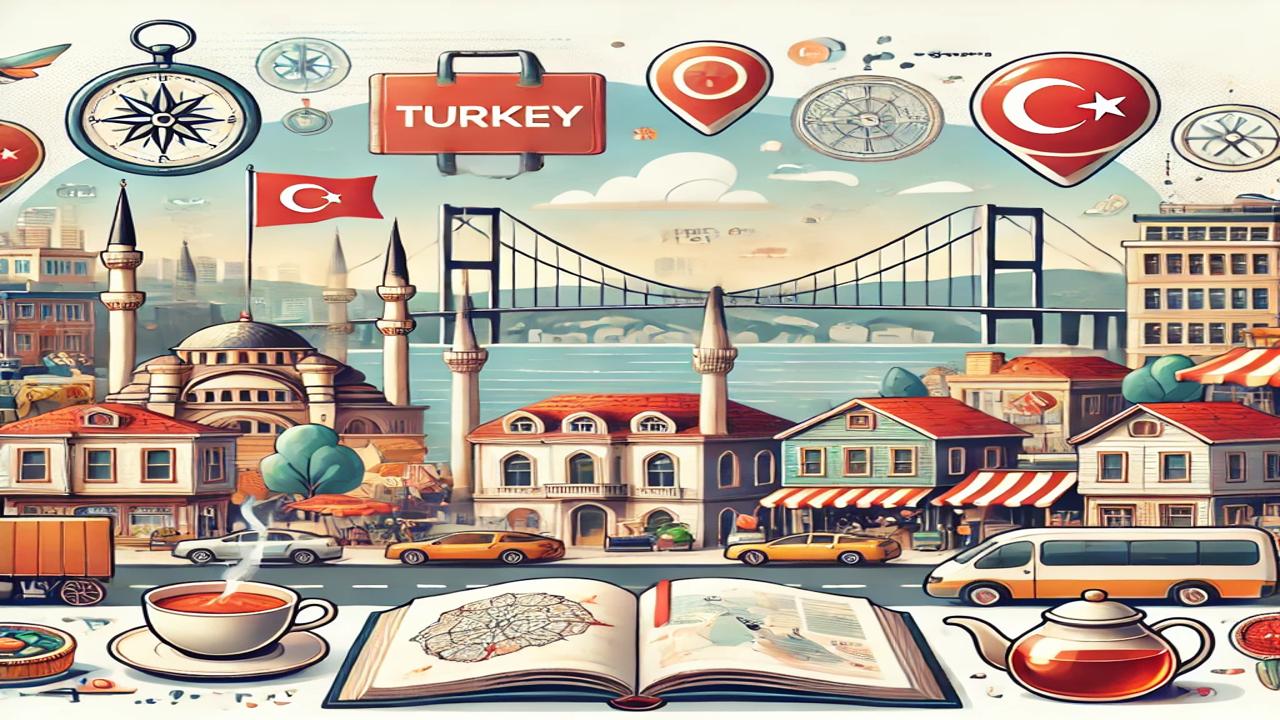Life in Turkey and Practical Information

1. Welcome to Turkey! - General Information
Turkey lies between two continents, serving as a bridge between Asia and Europe. The official language is Turkish, and the currency is the Turkish Lira (TRY). Turkey consists of 81 provinces, each with its own unique climate, culture, and traditions. While life in large cities like Istanbul, Ankara, and Izmir is fast-paced and dynamic, you can experience a more relaxed lifestyle in coastal cities.
2. Accommodation in Turkey: Renting and Buying a Home Guide
Turkey offers a wide range of accommodation options. If you are planning a short-term stay in Turkey, you can find hotels, guesthouses, or rental apartments. For those planning to live long-term, renting or buying a home is a bit different.
-
Renting a Home: When renting a home, you should pay attention to details such as the rent price, security deposit, and payment dates. Rent prices can be high in central locations, especially in big cities. It’s important to research the economic structure of different neighborhoods.
-
Buying a Home: Foreigners are allowed to buy property in Turkey, but there are specific laws and regulations. For example, some areas restrict property sales to foreigners, but buying property is common in major cities and tourist regions.
3. Healthcare System and Insurance
Turkey has made significant improvements in its healthcare services. Both public and private healthcare options are available, with high-quality hospitals in most large cities. It’s essential to have health insurance in Turkey.
-
General Health Insurance (SGK): Every individual working in Turkey can benefit from the public health insurance system (SGK). If you’ve just moved to Turkey and have a work permit, you can register for SGK.
-
Private Health Insurance: In addition to SGK, you can also opt for private health insurance. Private hospitals generally offer faster services, but insurance premiums can be higher.
4. Transportation and Public Transit
Turkey’s transportation network is well-developed. In large cities, metro, buses, trams, and minibuses are commonly used. Taxis and car rentals are also widespread.
-
Istanbul’s Transportation System: Istanbul, one of the world’s largest and most populous cities, has one of the most developed transportation systems. The metrobus, metro, ferries, and sea buses are convenient ways to travel around the city.
-
Anatolia and Aegean Region: In other cities, buses and minibuses are the most common modes of transportation. For trips to rural areas, renting a car may be a more practical option.
5. Shopping and Grocery Culture
Shopping in Turkey is quite popular, with a variety of options available, from large shopping malls to traditional markets.
-
Markets and Supermarkets: Weekly markets, known as “pazars,” are quite popular across the country. These markets sell fresh fruits, vegetables, spices, and local products. You can also find major brands in large supermarkets.
-
Prices: Prices in Turkey are generally reasonable, though in major cities like Istanbul and Ankara, some products may be more expensive. Shopping in local markets often offers more affordable prices.
6. Food Culture and Turkish Cuisine
Turkish cuisine is one of the richest and most diverse cuisines in the world. Anyone moving to Turkey should definitely try dishes like kebabs, lahmacun, börek, mantı, and for desserts, baklava, kadayıf, and künefe.
-
Restaurants and Lokantas: The restaurant culture in Turkey is well-developed, and you can find a wide variety of dishes, especially in tourist areas. Additionally, small local restaurants, known as "lokantas," offer authentic Turkish food at affordable prices.
-
Shopping: Grocery shopping in Turkey is typically done at markets or supermarkets. Many stores also offer organic and locally produced items.
7. Social Life and Culture in Turkey
Turkey is known for its hospitality, and social life is vibrant. In large cities, there are various events, festivals, concerts, and theater performances. Additionally, the people of Turkey are very social and welcoming.
-
Turkish Coffee Culture: Turkish coffee is an important part of Turkish culture. Many social events revolve around the tradition of drinking coffee.
-
Family and Community: Family ties are very strong in Turkey. Many people have close relationships with their relatives, and solidarity in society is highly valued.
8. Language and Communication in Turkey
Turkish is the official language of Turkey. However, in large cities and tourist areas, it’s possible to communicate in English and other foreign languages. Learning Turkish will make daily life much easier and help you communicate better with the locals.
- Language Schools: If you want to learn Turkish, language schools and private lessons are available in large cities. Starting to learn Turkish will make your life in Turkey much more comfortable.










